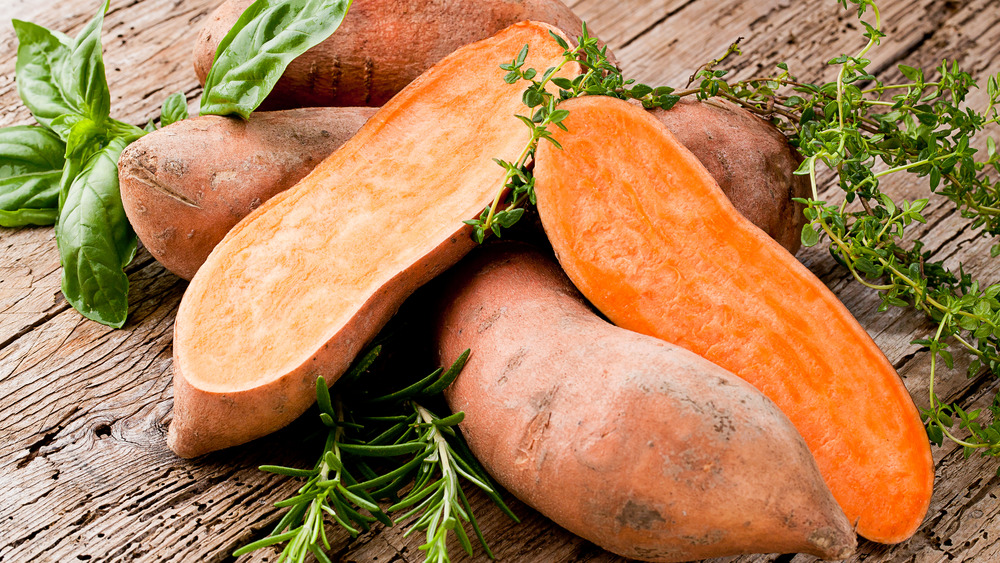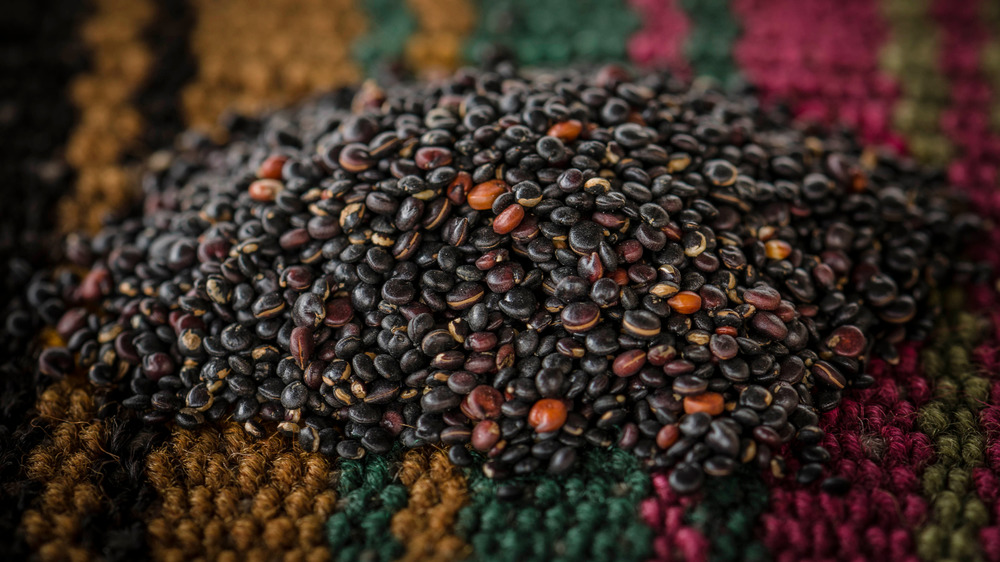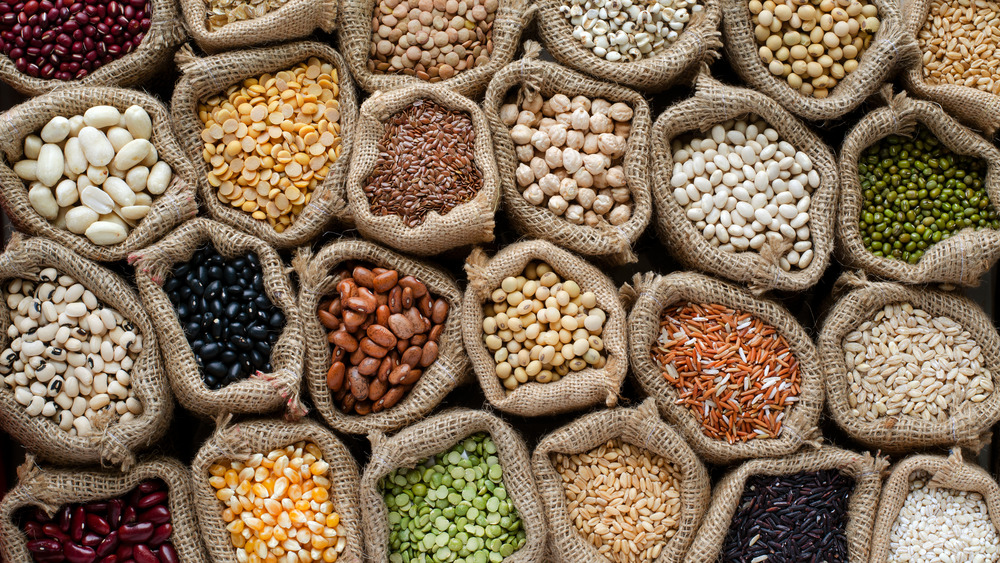Carb-Loaded Foods That Nutritionists Want You To Eat Every Day
Gone are the days that many of us feared stacking our plates with carbs. Luckily, more people have started to realize the essential role that carbs play in countless functions within the body, and thus have incorporated them into their diets. With a well-diversified plate and nutritionally-dense carbohydrates worked into your daily meals, you'll likely notice a boost in your energy and mood. A few foods in particular give you carb-laden goodness that your body craves. The List spoke exclusively with Trista Best, a registered dietitian at Balance One Supplements to get her opinion on which starches are important to eat.
For instance, she noted that sweet potatoes offer a high level of nutrients along with tons of fiber. "The micronutrients in a sweet potato are impressive, especially the Vitamin A (over 400 percent of your daily value) and Vitamin C (nearly 40 percent of your daily value) content," she said. Furthermore, the fiber content that sweet potatoes contain also helps keep you fuller for longer. "One, fiber leaves the consumer feeling fuller which makes them less likely to over eat at meal times and eat less between meals. Two, fiber removes toxins from the body and keeps the bowels regular, both of which reduce inflammation and weight," Best explained.
With your recommended daily intake of various vitamins and minerals, plus high levels of fiber, sweet potatoes are a health staple you should always keep around.
Opt for quinoa for a carb that's also a complete protein
A few years ago, during the protein craze, enthusiasts alleged that the only acceptable grain was quinoa. Due to its high level of protein and complex carbohydrate makeup, quinoa offers the vitamins and nutrients that many on a plant-based diet need more of.
"Quinoa is a plant-based complete protein which means it contains all nine essential amino acids," said Best. "Complete proteins are typically animal food sources only, which makes it ideal for any vegan diet."
On top of offering these nutrients to vegetarians and vegans, quinoa also works for those who steer clear of gluten. With tons of antioxidants and fiber, this grain offers more substance than pantry staples like rice and barley. "The fiber and antioxidant content are beneficial for immune health. This carbohydrate is naturally anti-inflammatory and makes getting in fiber and protein simple and tasty," Best adds.
For a complete carb-dense meal, add squash for your vegetable side. A cup of cooked winter squash boasts "over 400 mg of potassium and an impressive amount of Vitamin A (30 percent of your daily value), Vitamin C (20 percent of your daily value), and B-6 (10 percent of your daily value)," she explains.
Know the difference between complex and simple carbs
But, just like every other food group, carbohydrates come in different varieties — complex and simple. This is an important distinction to make when choosing the foods for each of your meals. "Simple carbohydrates come from processed and refined foods like convenience snacks foods," Best told The List. These can be chips, refined grains, and other items you find on the shelves, but they also take form as the carbs present in some fruits and milk. "This form of carbohydrate is broken down quickly and used immediately by the body for energy."
Since simple carbs get metabolized quickly, they don't offer tons of clean energy. Complex carbs, on the other hand, can do just that. "Complex carbohydrates are considered good to eat regularly, and the term refers to whole grains like oats, quinoa or brown rice and more," Best notes. "They are more nutrient-dense and provide the body with more than a quick glucose spike and stored fat."
So, when you're looking to add more carbs to your dishes, opt for the more complex, nutritionally-dense varieties like sweet potatoes, quinoa, and squash. With nutrients like fiber and, sometimes, protein, these options can make a difference in your energy levels and other essential processes.


